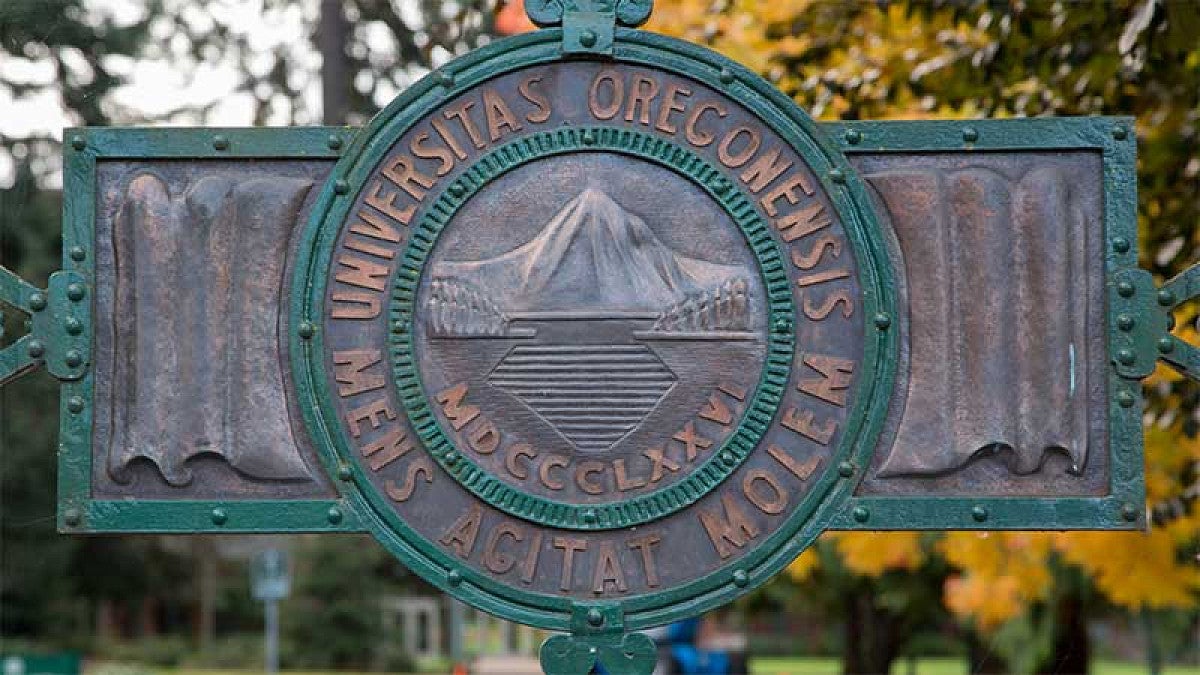One of the University of Oregon’s most successful and prominent alumni will be considered for an honorary degree when the UO Board of Trustees meets in Portland for its regular meetings Sept. 5-7.
Philip H. Knight, who earned a bachelor’s degree from the UO in 1959, has been nominated for an honorary degree as the university continues to revive the practice as a “significant way to highlight and show gratitude to those who have made a transformative and lasting impact through scholarship, the arts, or public service.”
If granted and accepted, Knight would join recent recipients Carrie Mae Weems, a renowned artist, and Lorry I. Lokey, a prominent philanthropist. Both were awarded honorary degrees in June. The practice of awarding honorary degrees had been on hiatus for a decade prior.
“To summarize the impact Mr. Knight has had on our society is a nearly impossible task,” wrote UO President Michael H. Schill in his nomination to the board of trustees. “Mr. Knight is a terrific example of spirit, creativity, hard work and generosity of time, talent, and treasure.”
The 1959 alumnus “changed the way business and marketing have been conducted forever,” Schill wrote.
Knight was selected through a process that began with his nomination by faculty members.
During the upcoming meetings, the board also will evaluate Schill’s performance as president as well as his employment contract, and the Academic and Student Affairs Committee will take a deep dive into recent efforts to revitalize core education at the UO.
Ron Bramhall, associate vice provost for academic excellence, and Chris Sinclair, associate professor of mathematics, will discuss the establishment of the Core Education Council and how the Office of the Provost worked with the University Senate to approve four core education learning goals based in the UO mission.
Beginning in fall 2019, each core education course will be required to address at least two of four learning goals, named methods of inquiry: critical thinking, creative thinking, written communication and ethical reasoning.
Also, the Finance and Facilities Committee will get an in-depth report from Jamie Moffitt, vice president for finance and administration and chief financial officer, on how Oregon funds higher education through the public university support fund administered by the state Higher Education Coordinating Commission.
With the establishment of institutional governance for Oregon’s public universities in 2014, the state moved to an outcomes-based funding formula for universities, known as the Student Success and Completion Model. Previously, university funding was distributed through a formula that was based almost entirely on resident student enrollment.
The new model was developed by a work group of administrators, faculty members and student leaders from all Oregon’s public universities.
During the full board meeting, trustees also will hear details of the president’s Freedom of Expression Series, the Carnegie Global Oregon program and the Prison Education Program, as well as the UO Portland strategic plan.
Meetings begin Wednesday at 2:30 p.m. in Room 136, Naito Building, 109 NW Naito Parkway, Portland.


